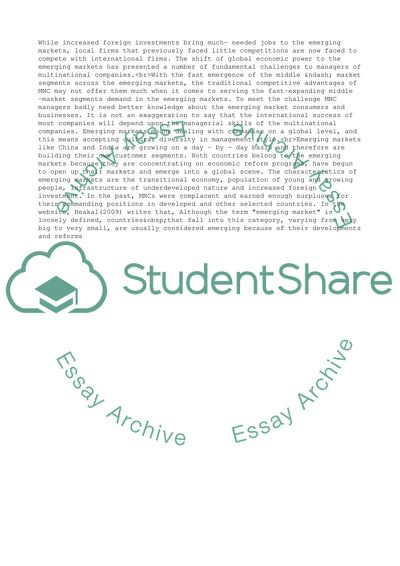Cite this document
(International Business in Emerging Markets Research Paper, n.d.)
International Business in Emerging Markets Research Paper. Retrieved from https://studentshare.org/business/1761619-international-business-in-emerging-markets-what-are-the-implications-for-managers-of-multinational-corporations-mncs-with-regard-to-new-strategies-and-organisational-structures-when-dealing-with-government-companies-in-emerging-markets
International Business in Emerging Markets Research Paper. Retrieved from https://studentshare.org/business/1761619-international-business-in-emerging-markets-what-are-the-implications-for-managers-of-multinational-corporations-mncs-with-regard-to-new-strategies-and-organisational-structures-when-dealing-with-government-companies-in-emerging-markets
(International Business in Emerging Markets Research Paper)
International Business in Emerging Markets Research Paper. https://studentshare.org/business/1761619-international-business-in-emerging-markets-what-are-the-implications-for-managers-of-multinational-corporations-mncs-with-regard-to-new-strategies-and-organisational-structures-when-dealing-with-government-companies-in-emerging-markets.
International Business in Emerging Markets Research Paper. https://studentshare.org/business/1761619-international-business-in-emerging-markets-what-are-the-implications-for-managers-of-multinational-corporations-mncs-with-regard-to-new-strategies-and-organisational-structures-when-dealing-with-government-companies-in-emerging-markets.
“International Business in Emerging Markets Research Paper”, n.d. https://studentshare.org/business/1761619-international-business-in-emerging-markets-what-are-the-implications-for-managers-of-multinational-corporations-mncs-with-regard-to-new-strategies-and-organisational-structures-when-dealing-with-government-companies-in-emerging-markets.


